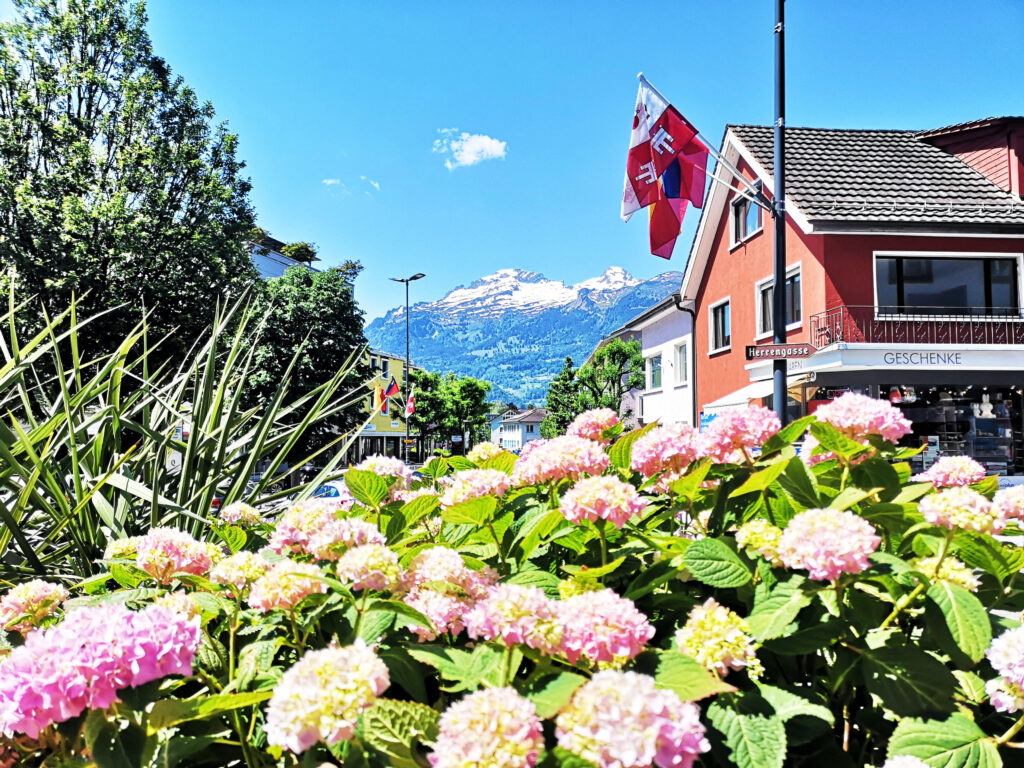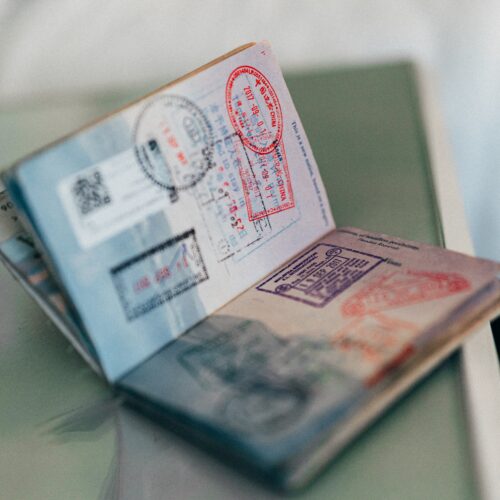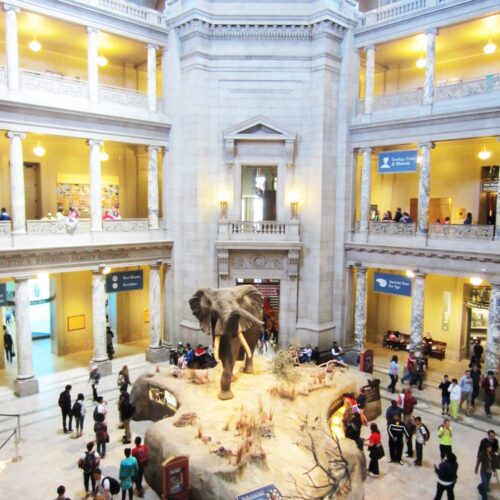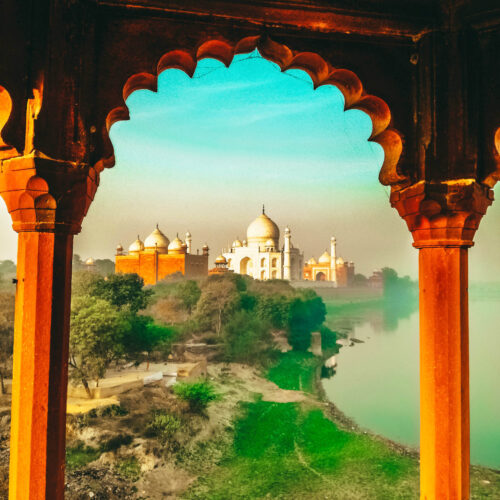Size doesn’t matter: Liechtenstein proves small is still mighty!
This landlocked country in Central Europe’s Alps and one of the smallest countries in the world. It’s so small in fact, that visitors can drive through it within a 1/2 hour. It borders Switzerland and Austria and sits between Zurich and Milan. Also, it is prounounced as “lik·tuhn·stine”, whicle many people add a “ch” in the pronunciation.
Due to its proximity and influence from Austria, German is the national language, but the majority speak a dialect of German called Alemannic. English is also widely spoken, and some people speak Italian and Romansh.
A royal family is headed by the prince of Liechtenstein—Johannes Adam Ferdinand Alois Josef Maria Marco d’Aviano Pius, aka Hans-Adam II. A person from Liechtenstein is called a Liechtensteiner. It was once known as a billionaire tax haven, but no longer.
The official currency of Liechtenstein is the Swiss franc (CHF). The country has its own set of commemorative coins and sometimes issues its stamps and phone cards, considered collector’s items.
Here’s a list of what to see and do:
- Vaduz Castle – The striking hilltop residence of the Prince of Liechtenstein boasts vast views of the surrounding countryside.
- Kunstmuseum Liechtenstein – A modern art museum featuring works by internationally renowned artists such as Pablo Picasso and Salvador Dalí. The sleek exterior is art on its own.
- Liechtenstein National Museum – This 42-room museum, with two buildings dating back to the Middle Ages, steps back into the country’s history and culture, exhibiting everything from traditional folk costumes to the Princely Collections.
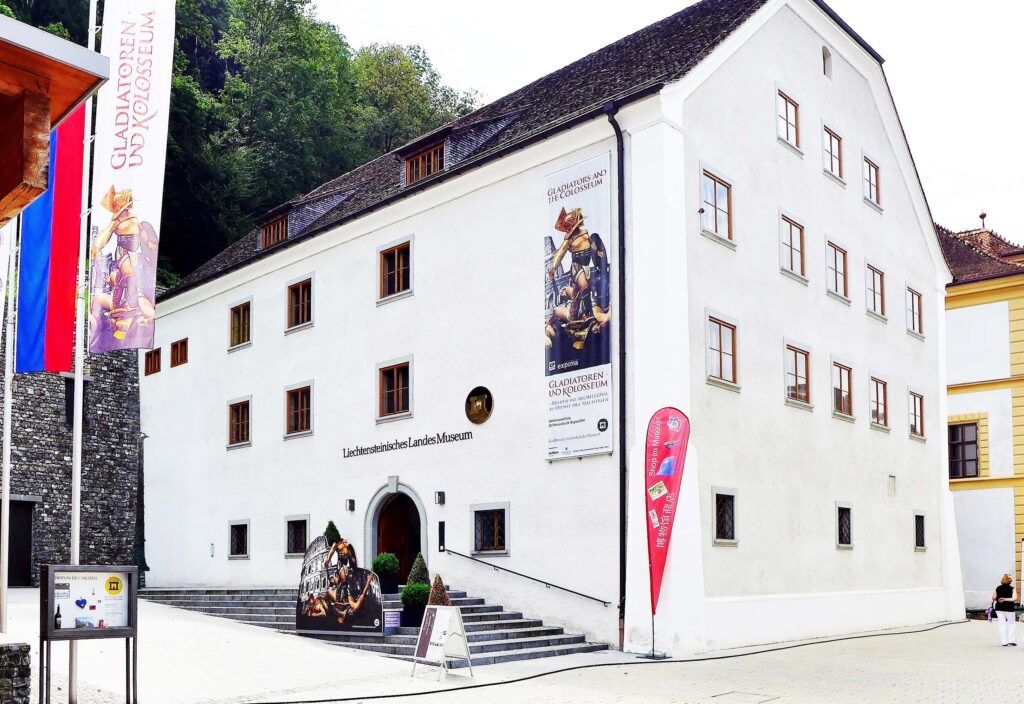
- Triesenberg – A picturesque mountain village known for its charming town dotted with cafes, Alpine views, and miles of hiking trails.
- Malbun Ski Resort – Within the Triesenberg area is a popular destination for everything winter sports offering skiing and snowboarding on well-groomed slopes.
- Gutenberg Castle – A medieval fortress perched on a hilltop in the town of Balzers. It is one of five castles in the area and boasts picture-perfect panoramic views of the surrounding countryside.
- Florin’s Church – This NEO-Gothic church dates back to the 14th century and is known for its ornate frescoes and altarpiece. Modern-day history states it was given cathedral status in 1997 with the setting up of the Roman Catholic Archdiocese of Vaduz.
- Liechtenstein Center – An interactive exhibition center in the capital city of Vaduz, provides an overview of the country’s history, culture, and economy. Drop in to pick up a souvenir in their boutique.
Did you know?
It has no military: Liechtenstein is one of the few countries with no military force. Instead, the country relies on a treaty with Switzerland for its defense. Despite its lack of military, it is one of the world’s most peaceful and stable countries.
A little history:
The Principality of Liechtenstein was formed in 1719 when the Liechtenstein family purchased the Lordship of Schellenberg and the County of Vaduz. These two territories were merged to create a new principality named after the family.
In the 19th century, it became closely tied to Austria, which shared a customs union. This relationship was strengthened in 1866 when Austria was defeated in the Austro-Prussian War, and it was forced to join a new customs union with Switzerland.
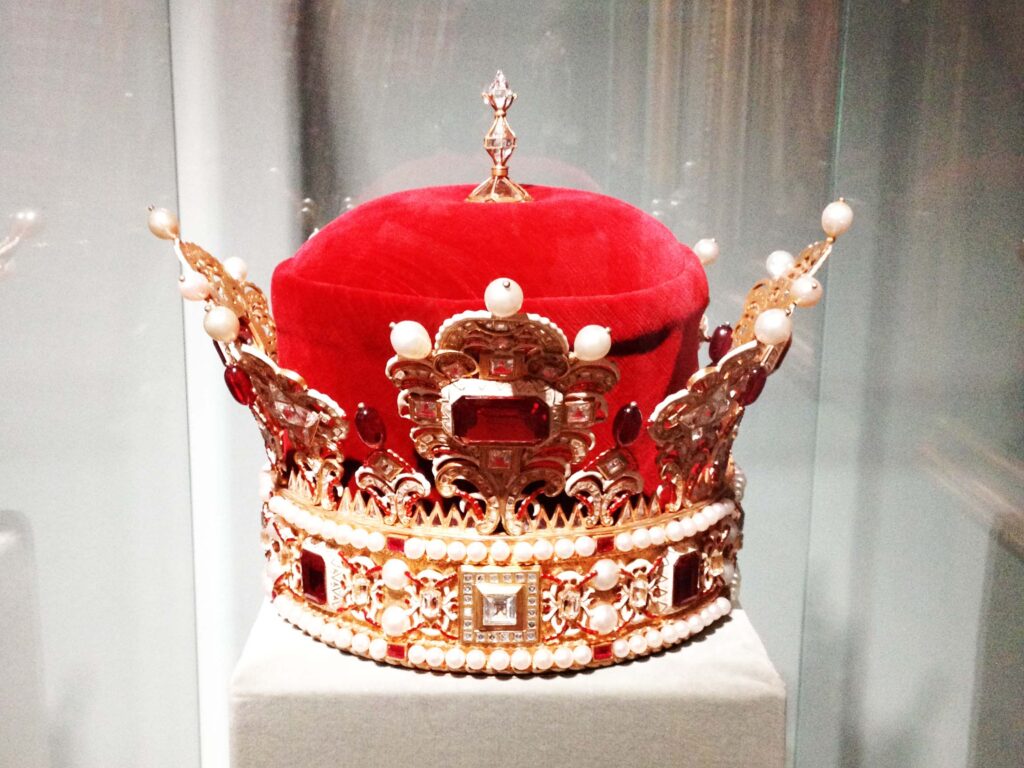
During World War II, Liechtenstein remained neutral and avoided being occupied by Nazi Germany. The country’s neutrality was recognized by both the Allies and the Axis powers, providing a haven for refugees and dissidents from both sides.
In the post-war period, the country experienced economic growth, fueled partly by its financial services industry growth. The country’s low tax rates and favorable business climate made it a popular destination for companies and wealthy individuals seeking to minimize their tax liabilities.
In 2003, Liechtenstein became embroiled in a major financial scandal when it was revealed that a Liechtenstein-based bank had been helping wealthy individuals and businesses evade taxes. The scandal increased pressure on the country to increase transparency and cooperate with other countries on tax matters.
Today, it’s a prosperous and stable country with a high standard of living. It is known for its beautiful scenery, vibrant art scene, and unique political and economic systems.
